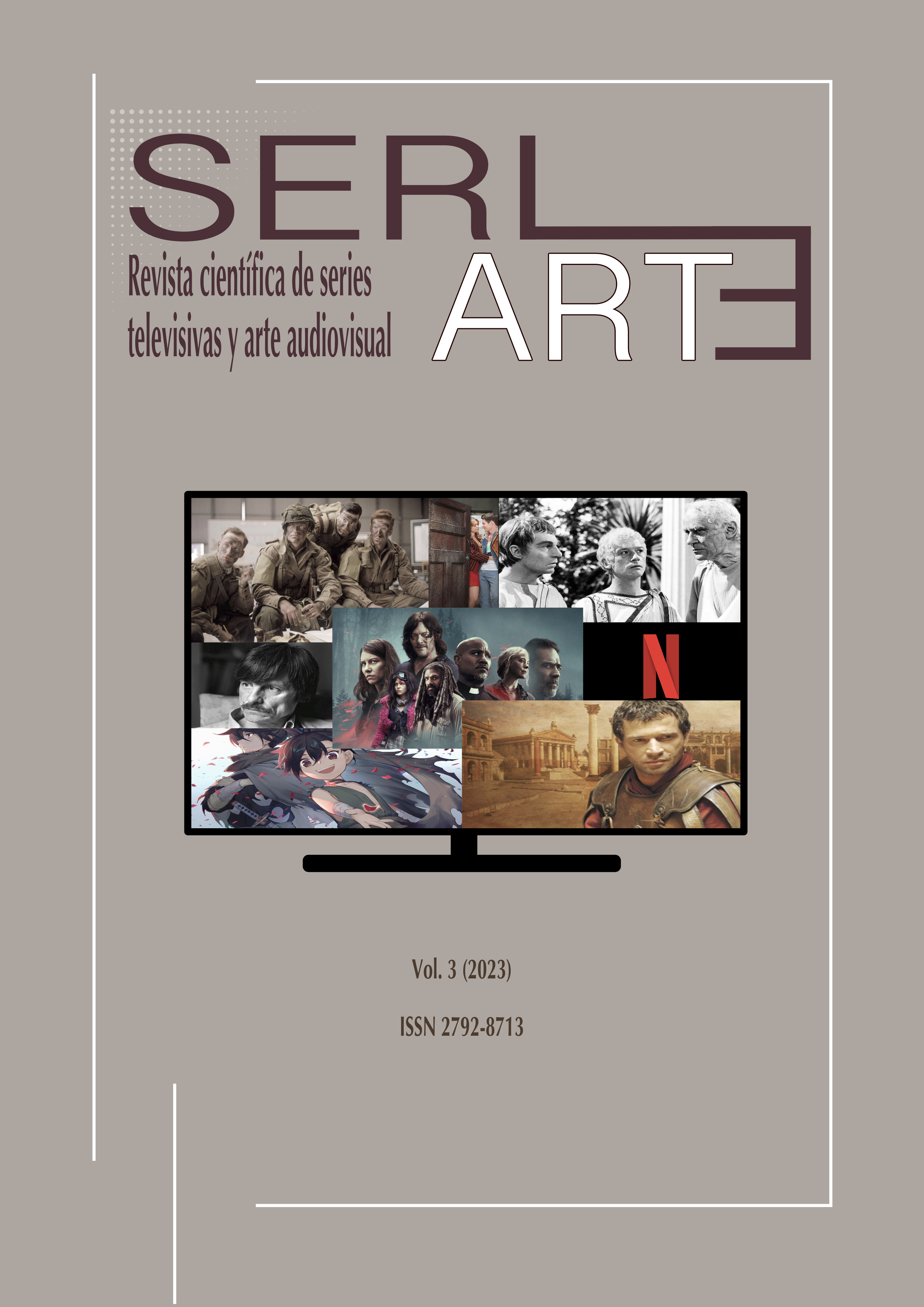Band of Brothers and how to take advantage from hbo’s vision of World War II
Main Article Content
Abstract
Since its premiere, Band of Brothers (HBO, 2001) has been considered one of the best series in history, with an undeniable quality that blurs the boundaries between television and cinema. Its privileged position in the history of television, and its example of spectacular production have made it an paradigm for many other later historical or epic series. As an adaptation of Stephen Ambrose's namesake novel, it is based on a solid historical foundation, offering the audience a very attractive result based on facts that are necessarily partial to a conflict as broad as the one in which it is set, the World War II. But both its plot and the unique narrative tools it uses make it a very valuable audiovisual complement that can be used to support our knowledge and teaching about a conflict that was so decisive for the development of the 20th century and even in our present 21st century.
Downloads
Publication Facts
Reviewer profiles N/A
Author statements
Indexed in
- Publisher
- Ucopress. Cordoba University Press
Article Details
References
AMBROSE, S.E. (2002), Hermanos de sangre. Compañía E, 506 Regimiento, 101 División Aerotransportada. Desde Normandía hasta el Nido del Águila de Hitler, Barcelona: Salvat.
CRIM, B.E. (2018), «“I Got No Problem In Killing My Kin”: Fury (2014) and the Evolution of the World War II Combat Film», Film & History, 48, pp. 4-14.
FERRO, M. (1980), Cine e Historia, Barcelona: Gustavo Gili.
GOROSTIDI MUNGUÍA, J. (2009), «Sam Fuller: el cine es un campo de batalla», en NARVÁEZ TORREGROSA, D. C. y MARTÍNEZ MUSABIMANA, J. (eds.), La derrota del III Reich a través del cine, Alicante: Club Universitario, pp. 239-256.
LACOLLA, E. (2008), El cine en su época: una historia política del filme, Córdoba (Argentina): Comunic-Arte.
MONTERDE, J.E. (1986), Cine, historia y enseñanza, Barcelona: Laia.
MURUZÁBAL, A. y GRANDÍO, M. del M. (2009). «La representación de la guerra en la ficción televisiva norteamericana contemporánea», Mediaciones Sociales, 5, pp. 63-83. En <https://revistas.ucm.es/index.php/MESO/article/view/MESO0909220063A> (fecha de consulta: 18-08-2022).
NIGRA, F. (2013), Historias de Cine. Hollywood y Estados Unidos, Valencia: Universitat de València.
PARDO, A. (2007), «Hermanos de sangre (Band of Brothers, 2001): de héroes y soldados», en PABLO, S. de (ed.), La historia a través del cine. Las dos guerras mundiales, Bilbao: Universidad del País Vasco / Euskal Herriko Unibertsitatea, pp. 129-169.
PIKETTY, G. (2016), «La Seconde Guerre mondiale dans Band of Brothers (HBO, 2001) et The Pacific (HBO, 2010)», TV/Series, 10. https://doi.org/10.4000/tvseries.1897
PINUAGA, A. y VAART, Y. van der (2010), Rodamos historia, Madrid: T & B.
RAMSAY, D. (2013), «Televisions “True Stories”: Paratexts and the Promotion of HBO’s Band of Brothers and The Pacific», InMedia, 4. https://doi.org/10.4000/inmedia.720
REAL ACADEMIA ESPAÑOLA (2022). Diccionario de la lengua española [en línea]. En < https://dle.rae.es/> (fecha de consulta: 25-08-2022).
ROSENSTONE, R.A. (2008), «Inventando la verdad histórica en la gran pantalla», EN CAMARERO, G.; HERAS, B. de las; y CRUZ, V. de (eds.), Una ventana indiscreta. La Historia desde el cine, Madrid: JC, pp. 9-18.
SÁNCHEZ BARBA, F. (2005), La Segunda Guerra Mundial y el cine (1979-2004), Madrid: Ediciones Universitarias Españolas.
SÁNCHEZ ZAPATERO, J. y MARCOS RAMOS, M. (2018), «La representación de los campos de concentración en Hermanos de sangre (Band of Brothers, HBO, 2001)», Signa: Revista de la Asociación Española de Semiótica, 27, pp. 1043-1064. https://doi.org/10.5944/signa.vol27.2018.18723
SUÁREZ, J.V. (2009), «La azarosa victoria aliada», en NARVÁEZ TORREGROSA, D.C. y MARTÍNEZ MUSABIMANA, J. (eds.), La derrota del III Reich a través del cine, Alicante: Club Universitario, pp. 129-146.






